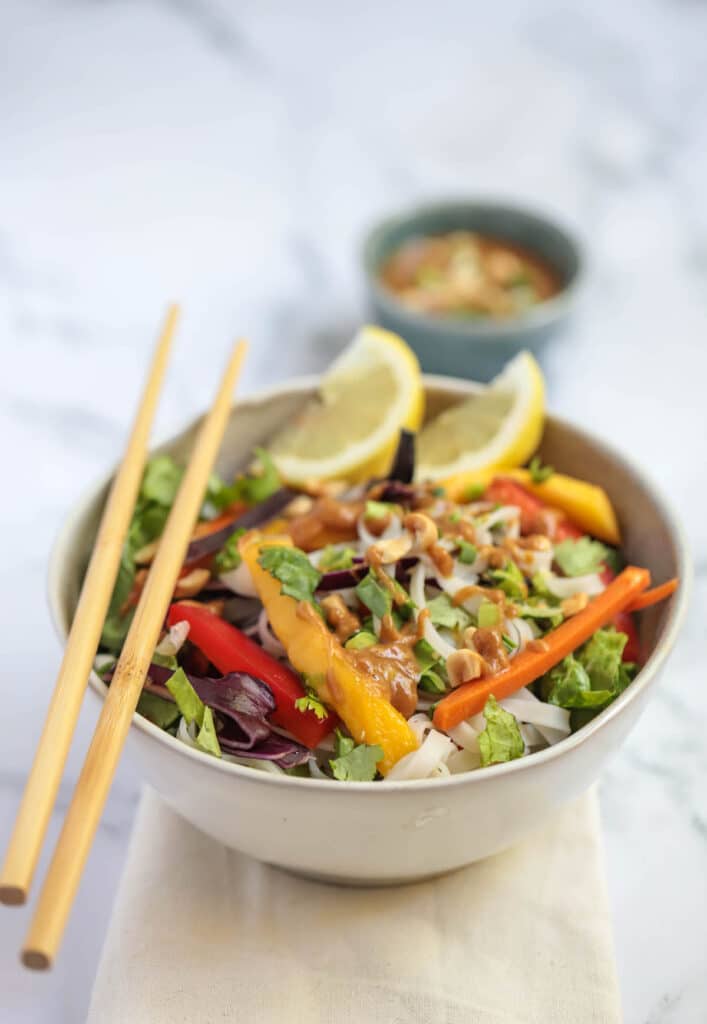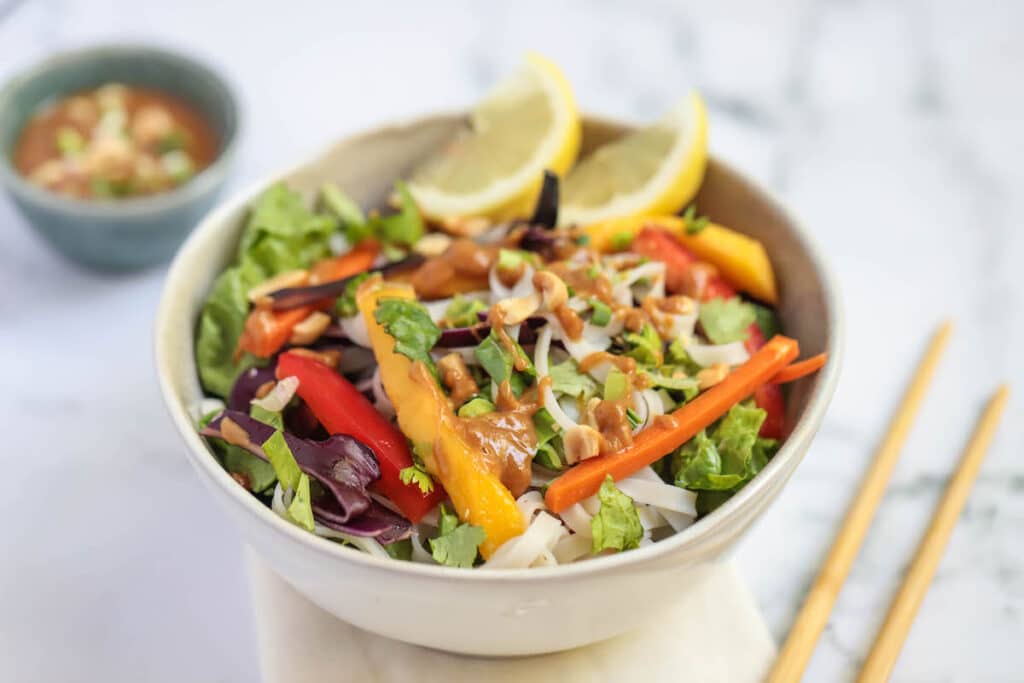This Thai noodle salad is so delicious and refreshing you’ll want to have it on regular repeat!
What’s more, because it’s a Thai noodle salad it’s packed with oodles of fibre-rich goodness that’s super fresh. The Thai people do it so well. In addition, the tofu/salmon/chicken along with the nuts serve up protein which is so important for midlife women.
So without further ado…
Thai Noodle Salad with Peanut Dressing
Serves 4
(Only you? Halve the ingredients to make two meals)
For the salad:
- Approximately a fist size of tofu/chicken/salmon per person
- 225g Pad Thai rice noodles, dry
- 1 iceberg or cos lettuce, sliced
- ¼ head red cabbage, shredded
- 1 red capsicum, sliced
- 1 carrot, grated
- 4 spring onions, sliced
- 1 cucumber, cubed
- 4 tbsp coriander, chopped
- 4 tbsp roasted peanuts (or slivered almonds), chopped
- 1 mango, sliced (optional)


For the dressing:
- 4 tbsp creamy peanut butter (we love Fix & Fogg’s)
- 1 ½ tbsp lime juice – No limes? No worries, sub lemon
- 1 ½ tbsp water
- 2 tsp rice wine vinegar
- 2 tsp tamari
- 1 tsp sesame oil
- ¼ tsp fish sauce (optional)
- ½ tsp sriracha/chili sauce (optional)
- ½ tsp root ginger, grated
- 1 clove garlic, minced
- 1 ½ tbsp brown rice syrup (if needed)
What you need to do:
- Cook the noodles according to the instructions on the packaging.
- Drain and set aside to cool a little.
- Make the dressing by placing all the dressing ingredients together in a small bowl and whisking until smooth.
- To serve, mix the noodles with the protein, vegetables, mango, coriander, nuts and dressing.
And there you have it. Thai Noodle Salad. Enjoy!
- Prep: 25 mins
- Cook: 5 mins
- Kcal: 476
- Gluten Free/Dairy Free/Meal Prep/Quick
Share with a friend
Facebook
Twitter
LinkedIn
Email












